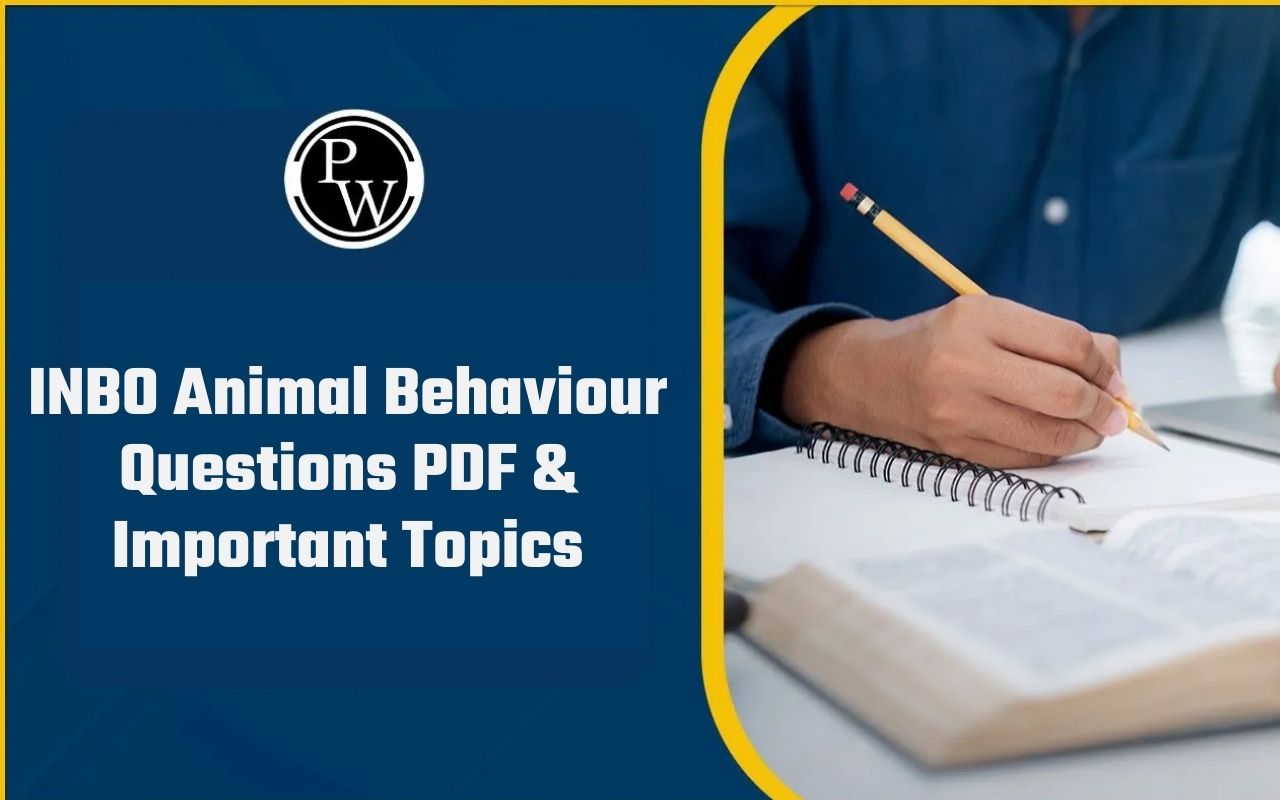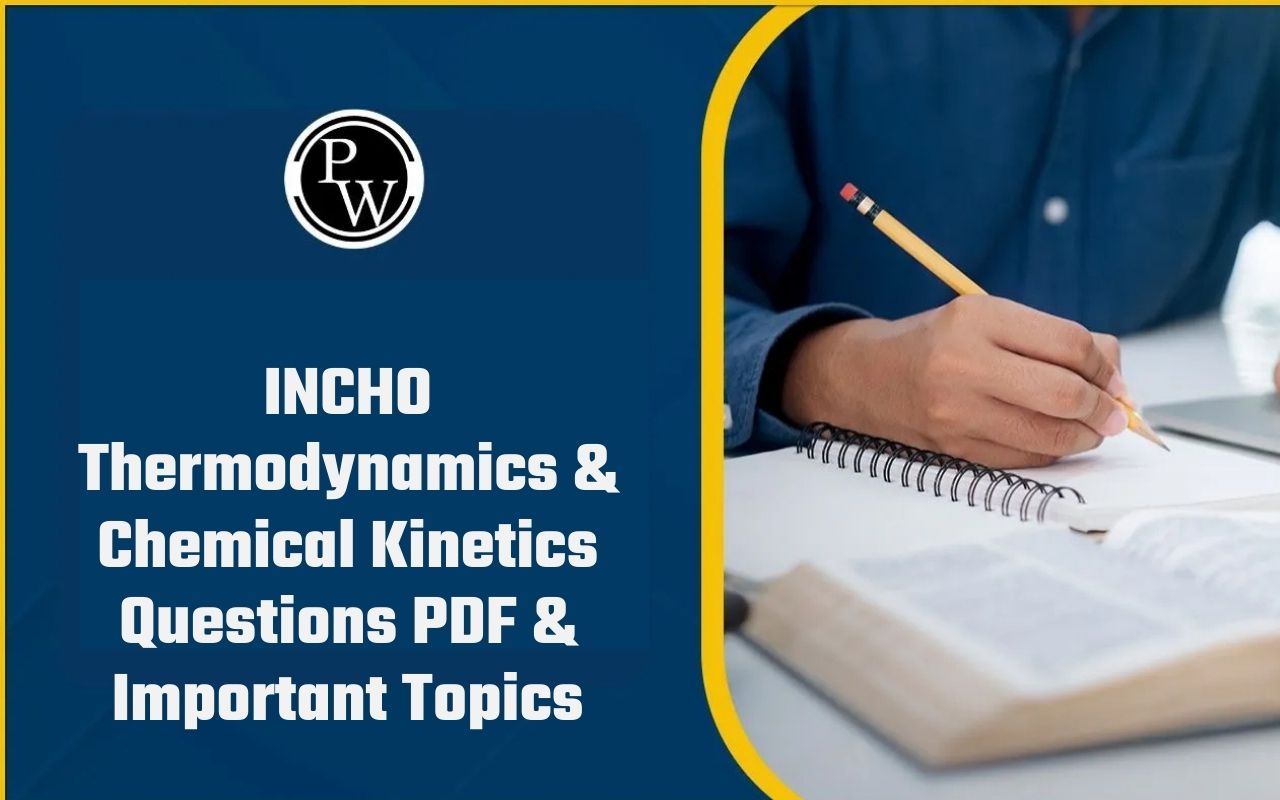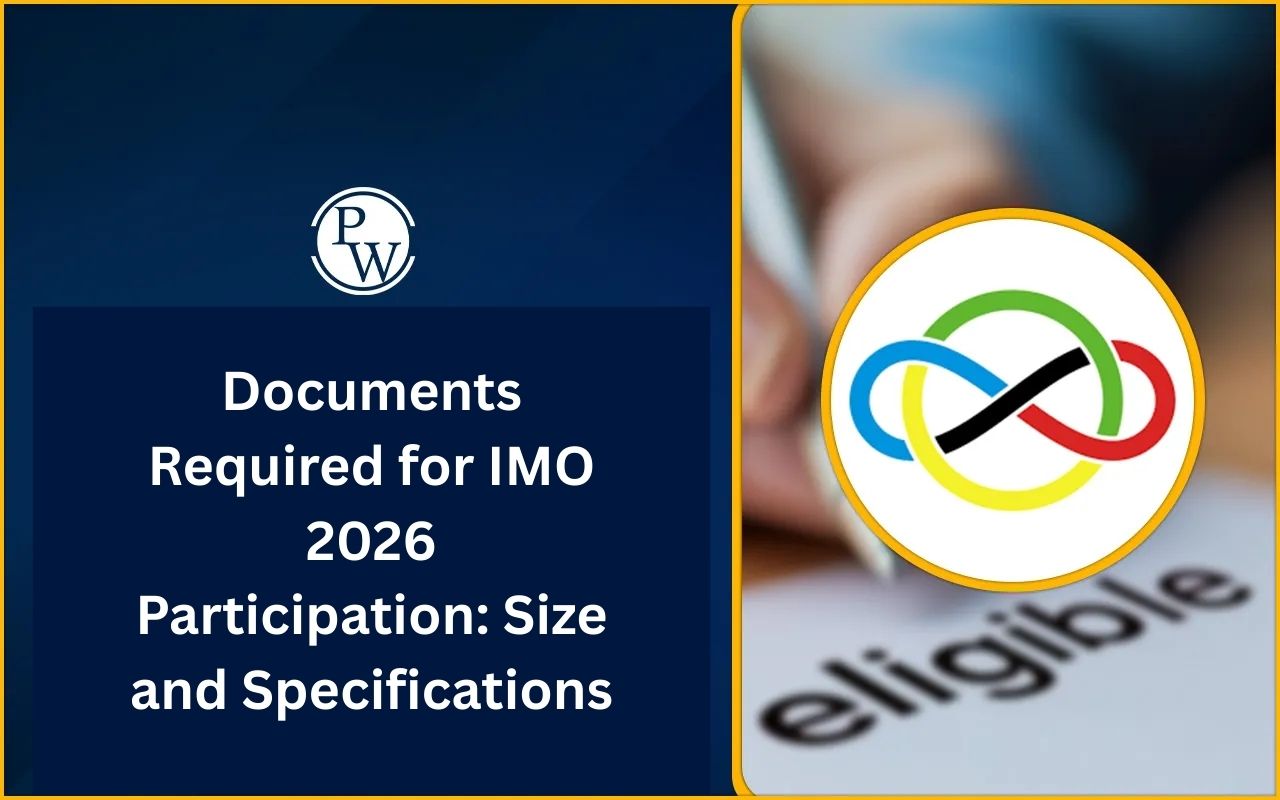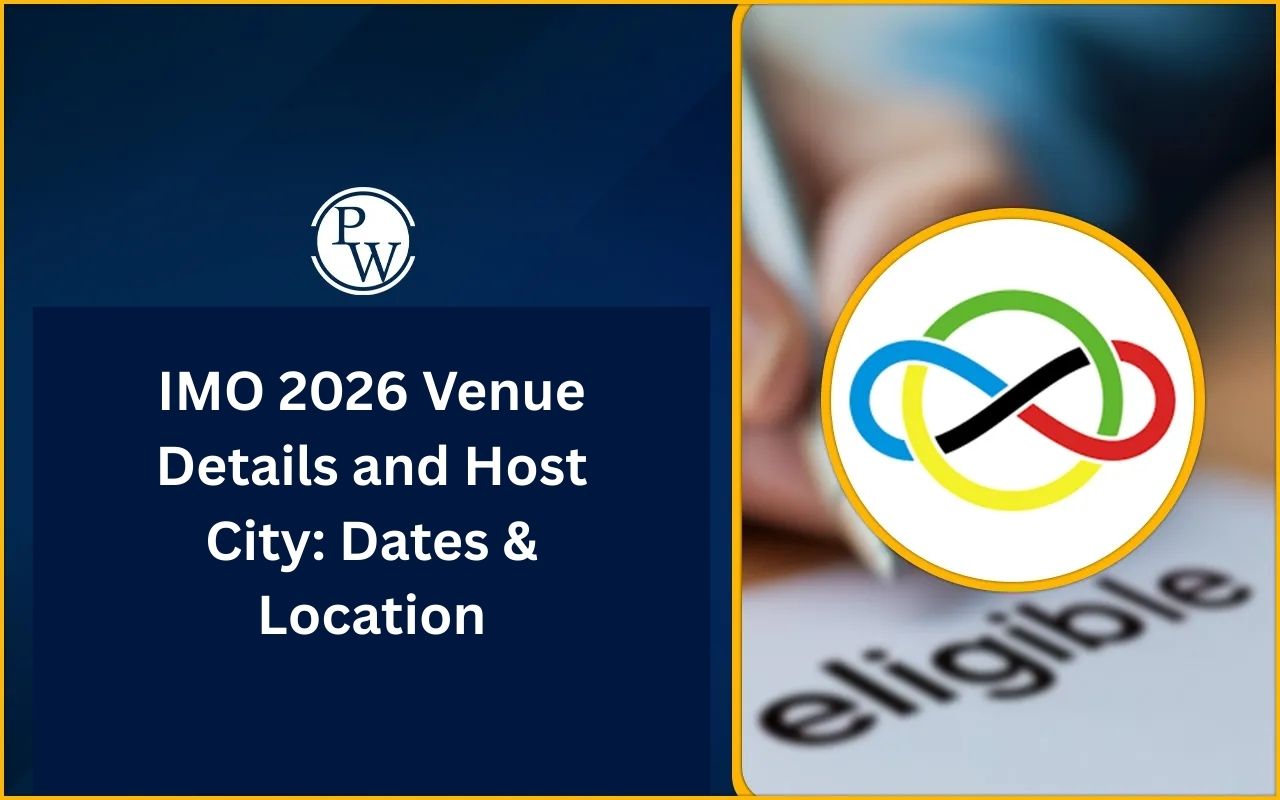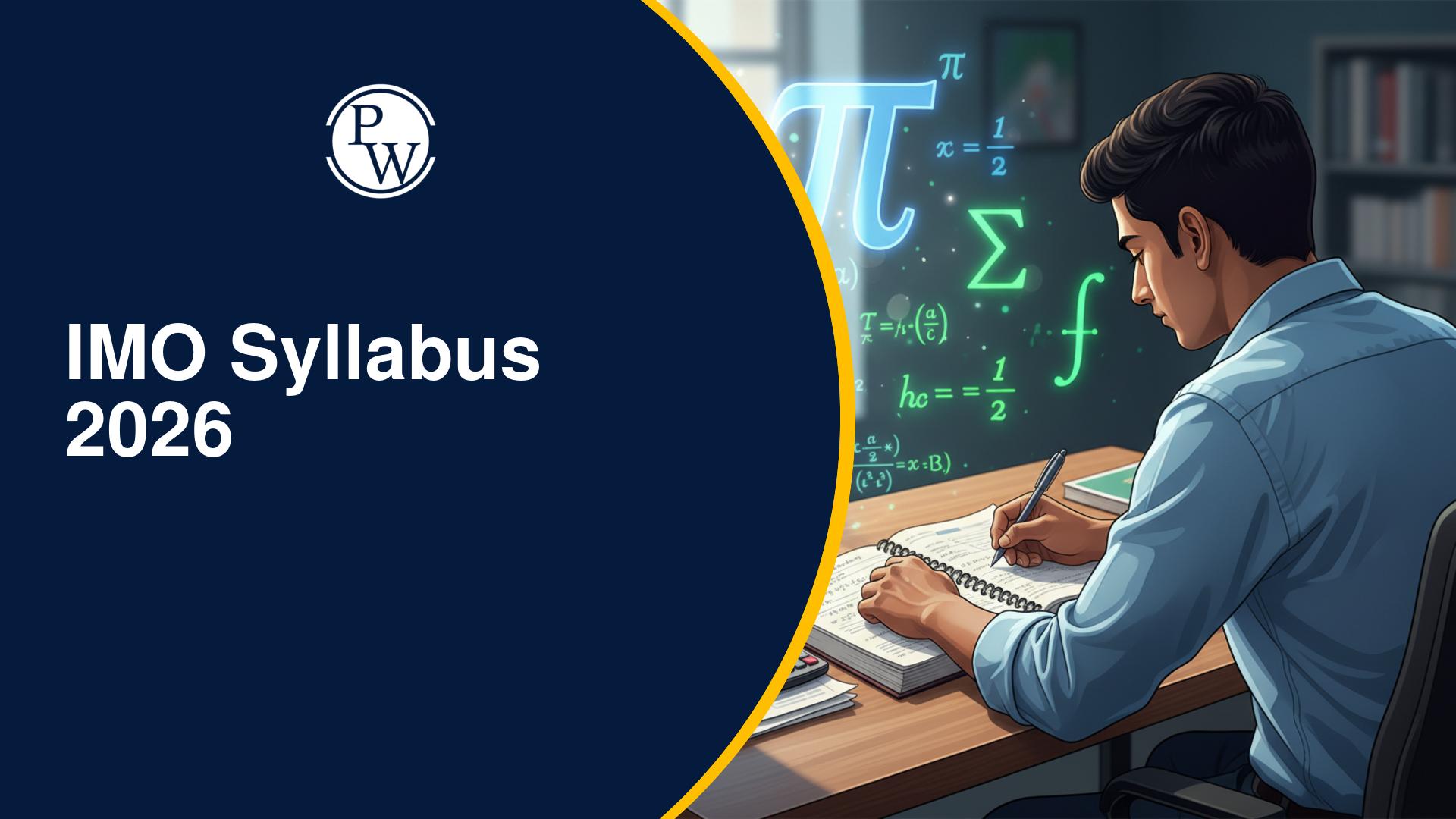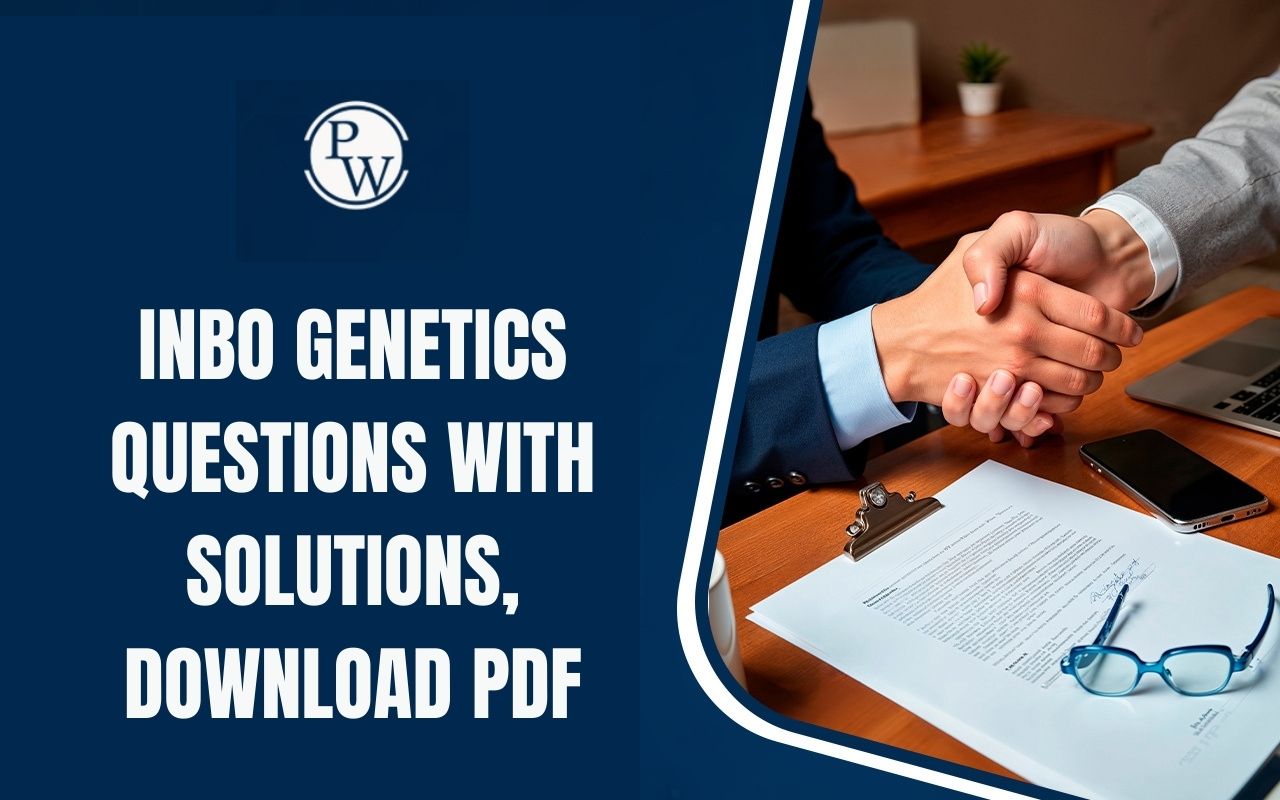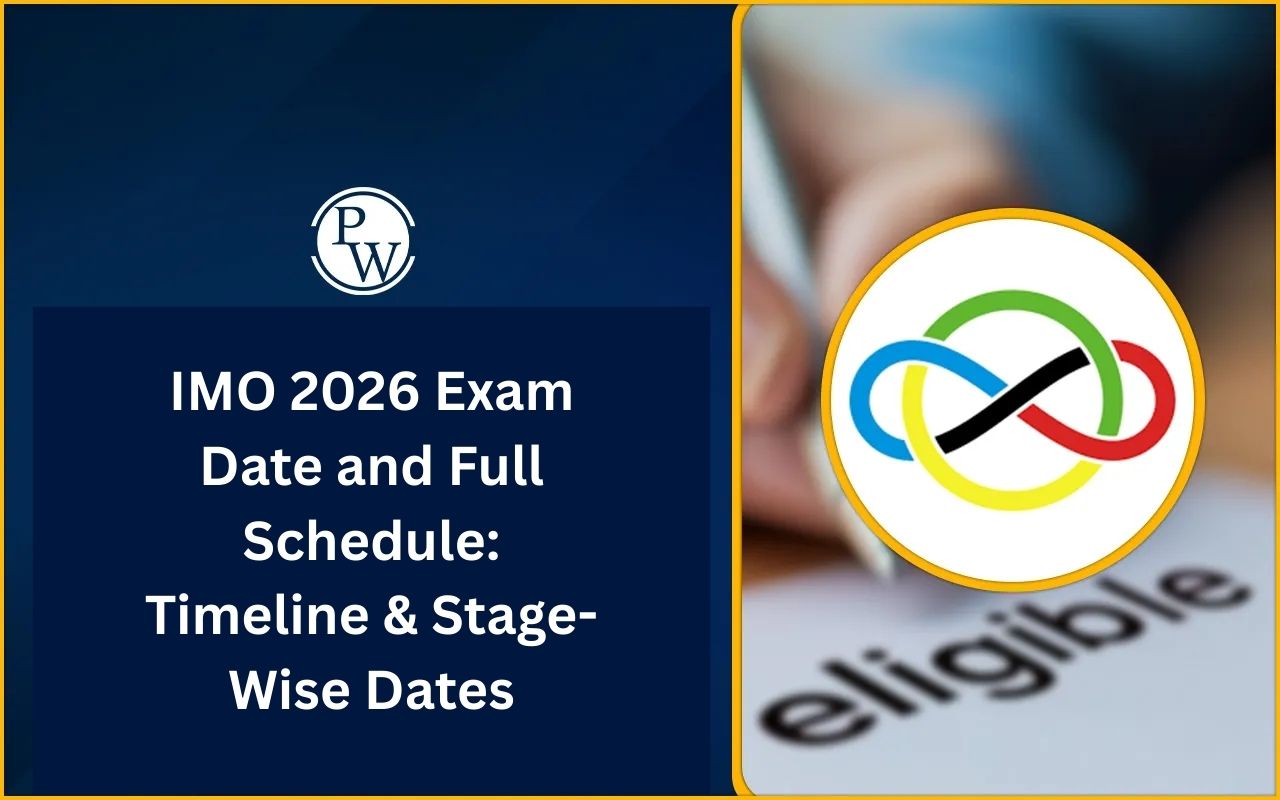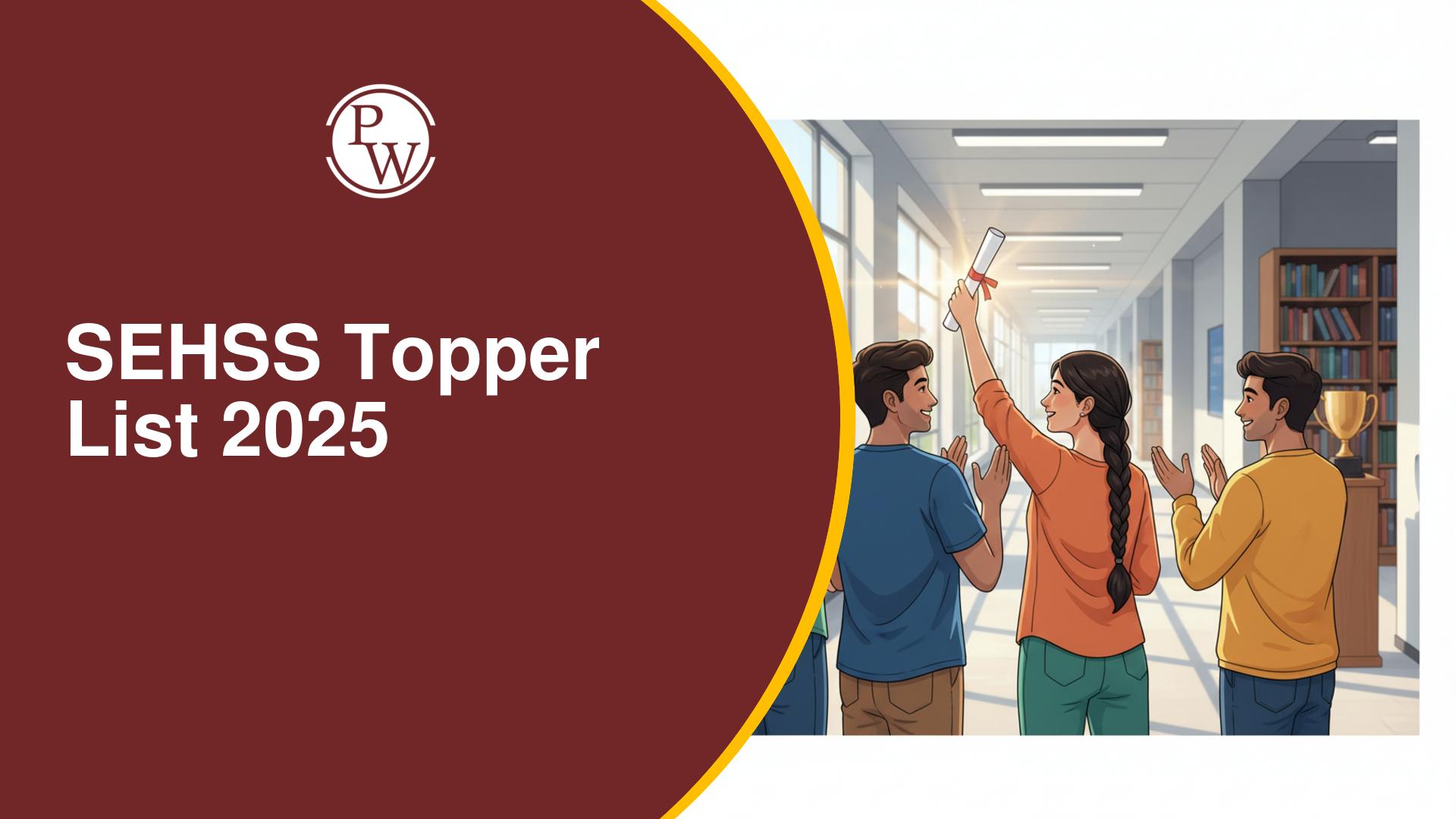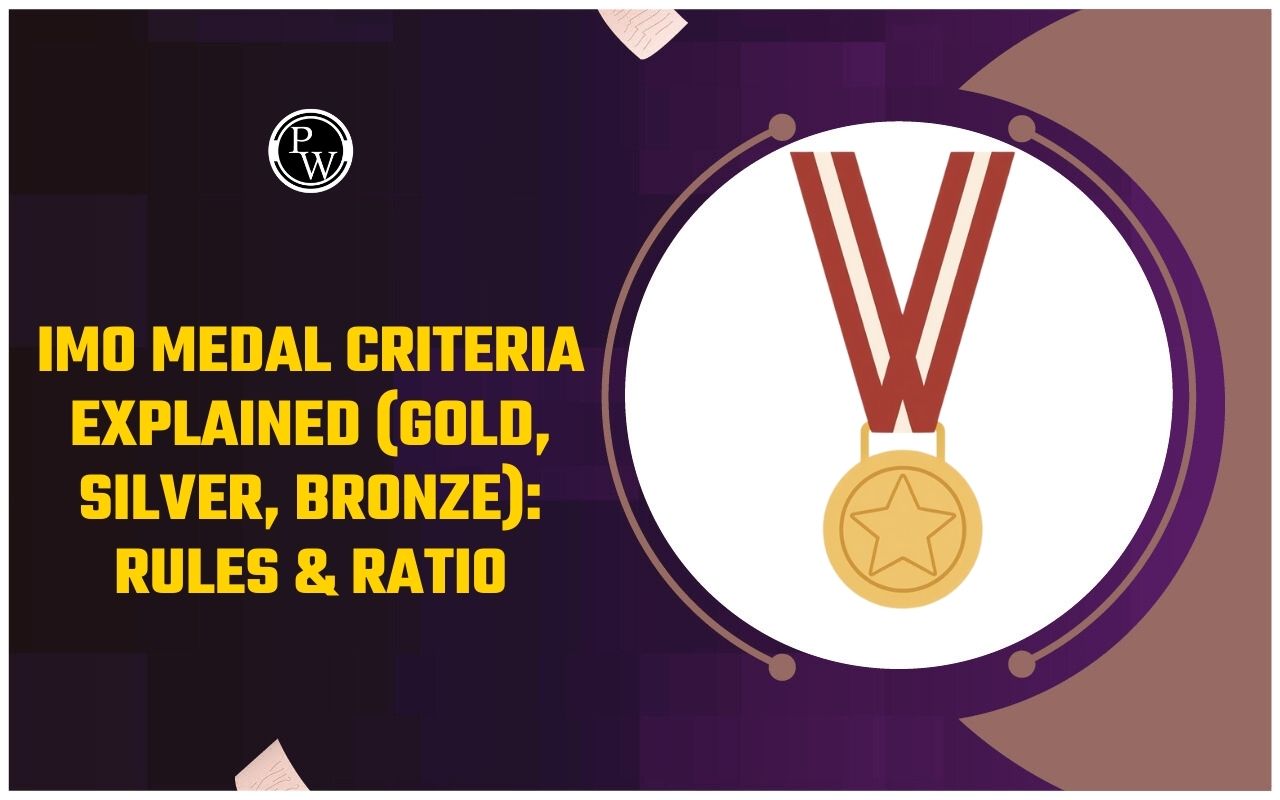
IOQM Syllabus 2025: The Homi Bhabha Centre for Science Education (HBCSE) has established the IOQM Syllabus 2025. Students should go through the IOQM chapters thoroughly as they get ready for the Indian Olympiad Qualifier in Mathematics (IOQM 2025). The IOQM syllabus 2025 comprises the mathematics syllabus for classes 8, 9, 10, 11 and 12.
Also Read: IOQM Result 2025
In the HBCSE Math Olympiad, the maximum number of questions from the section of algebra, number system, and geometry will be asked. The syllabus for classes 9 and 10 makes up the majority of the IOQM chapters. For IOQM 2025, students should finish the entire IOQM 2025 syllabus as soon as feasible to allow enough time for revision. The IOQM syllabus PDF must be kept by students to review the key subjects regularly.Olympiad Wallah Telegram Channel
IOQM Syllabus 2025 Overview
This IOQM Syllabus covers the foundational topics required for the IOQM 2025, ensuring a comprehensive understanding of various mathematical concepts. Students should carefully review and ensure they meet all the eligibility criteria before applying for IOQM Olympiad. This will help avoid any issues that may arise during the selection process. We will guide you through the IOQM Exam Pattern, question types, and effective strategies. We will also guide you through the IOQM paper format, question types, and effective strategies.| IOQM Syllabus 2025 Overview | |
| Organization | Indian Association of Physics Teachers (IAPT), the Mathematics Teachers Association of India (MTAI), and the Homi Bhabha Centre for Science Education (affiliated with the Tata Institute of Fundamental Research – HBCSE) |
| Exam Name | Indian Olympiad Qualifier in Mathematics( IOQM 2025) |
| IOQM 2025 Exam Date | 7th September 2025 |
| Mode of Exam | Pen and Paper Mode |
| Duration of IOQM Exam | 3 hours or 180 minutes |
| Type of Questions | Multiple Choice Questions |
| Official Website | https://ioqm.manageexam.com/ |
IOQM Previous Year Question Papers
IOQM Syllabus - Basic Mathematics
The IOQM 2025 syllabus includes a wide range of mathematical topics (excluding calculus). Here is a detailed breakdown of the IOQM syllabus.| IOQM Syllabus | |
|---|---|
| Topic | Description |
| Arithmetic of Integers | Basic arithmetic operations, properties, and number theory related to integers. |
| Geometry | Properties and relations of points, lines, surfaces, and solids. |
| Trigonometry | Study of angles, triangles, and trigonometric functions and their applications. |
| Inequalities | Mathematical expressions involving greater than, less than, and equal to signs. |
| Coordinate Geometry | Geometry using a coordinate system, including lines, curves, and shapes. |
| System of Linear Equations | Solutions and properties of linear equations and their systems. |
| Permutations and Combinations | Counting techniques involving arrangement and selection of objects. |
| Factorization of Polynomials | Techniques for breaking down polynomials into simpler components. |
| Quadratic Equations and Expressions | Solutions and properties of quadratic equations and related expressions. |
| Elementary Combinatorics | Basic principles of counting, arrangements, and selections. |
| Finite Series and Complex Numbers | Study of series with a finite number of terms and introduction to complex numbers. |
| Probability Theory | Concepts and applications of probability. |
| Number Theory | Properties and relationships of numbers, especially integers. |
| Elementary Graph Theory | Study of graphs, nodes, edges, and their properties. |
IOQM Syllabus - Number Theory
Number Theory is a key component of the IOQM 2025 syllabus, often featured in the IOQM question pattern, and it includes topics like Prime Numbers, Divisibility, Modular Artihmetic, Diophantine Equations, Number Bases and Arithmetic Functions.
| Sub-topic | Concepts |
|---|---|
| Prime Numbers | Prime factorization, prime counting functions, sieve methods (e.g., Eratosthenes’ sieve), properties of prime numbers. |
| Divisibility | Divisibility rules, Greatest Common Divisor (GCD), Least Common Multiple (LCM), Euclidean algorithm. |
| Modular Arithmetic | Congruences and modular arithmetic, residues and non-residues, Chinese Remainder Theorem. |
| Diophantine Equations | Linear Diophantine equations, Pell’s equation, Fermat’s Last Theorem. |
| Number Bases | Binary, octal, hexadecimal, and other bases, base conversion. |
| Arithmetic Functions | Euler’s totient function (φ), Mobius function (μ), number of divisors function (σ), sum of divisors function (σ), Fermat’s Little Theorem, Euler’s Totient Theorem. |
IOQM Syllabus - Algebra
Algebra is another core topic of the IOQM chapters and frequently appears in the IOQM paper format. Topics that need to be covered for the IOQM Alegbra Syllabus are Basic Algebraic Manipulations, Inequalities, Polynomials, Sequence and Series, Functional Equations, Binomial Theorem and Combinatorics and Polynomial Equations.
| Sub-topic | Concepts |
|---|---|
| Basic Algebraic Manipulations | Simplification of algebraic expressions, factorization of polynomials, solving algebraic equations. |
| Inequalities | AM-GM inequality, Cauchy-Schwarz inequality, rearrangement inequality, Jensen’s inequality. |
| Polynomials | Fundamental theorem of algebra, Vieta’s formulas, Newton’s identities, Eisenstein’s criterion. |
| Complex Numbers | Operations with complex numbers, De Moivre’s Theorem, roots of unity. |
| Sequences and Series | Arithmetic progressions, geometric progressions, convergent and divergent series, infinite series summation (e.g., geometric series). |
| Functional Equations | Cauchy’s functional equation, Jensen’s functional equation, other functional equations. |
| Binomial Theorem and Combinatorics | Binomial coefficients, multinomial coefficients, combinatorial identities. |
| Polynomial Equations | Roots and coefficients of polynomial equations, factor theorem, rational root theorem. |
IOQM Syllabus - Combinatorics
Combinatorics plays a major role in the IOQM question pattern. It deals with the study of permutations and combinations, enumerations of the sets of elements. In the table below you can find the topics that need to be covered under the IOQM Combinatorics Syllabus 2025:
| Sub-topic | Concepts |
|---|---|
| Counting Principles | Multiplication principle, addition principle, inclusion-exclusion principle. |
| Permutations and Combinations | Arrangements (permutations), selections (combinations), combinatorial identities. |
| Pigeonhole Principle | Dirichlet’s principle, application in solving problems. |
| Recurrence Relations | Linear recurrence relations, homogeneous and non-homogeneous recurrences, solving recurrence relations. |
| Graph Theory | Basics of graph theory, graph coloring, trees and spanning trees, connectivity and Eulerian graphs, Hamiltonian cycles and paths. |
| Combinatorial Geometry | Geometric counting problems, theorems like the Sylvester-Gallai theorem. |
| Generating Functions | Generating functions for combinatorial sequences, operations on generating functions. |
| Combinatorial Identities | Vandermonde’s identity, hockey stick identity (combinatorial sum), Catalan numbers and other combinatorial sequences. |
IOQM Syllabus - Geometry
Geometry is vital in the IOQM chapters and constitutes a major portion of the IOQM 2025 syllabus. Topics to be covered are Euclidean Geometry, Geometric Transformations, Coordinate Geometry, and Trigonometry. Below are the topics of IOQM Geometry Syllabus.
| Sub-topic | Concepts |
|---|---|
| Euclidean Geometry | Points, lines, and planes; angle measurement and properties; congruence and similarity of triangles; quadrilaterals (properties and theorems); circles (tangents, secants, angles, and theorems); polygons (properties and interior/exterior angles). |
| Geometric Transformations | Reflection, rotation, translation, and dilation; isometries and similarities; symmetry and tessellations. |
| Coordinate Geometry | Distance formula, slope and equations of lines, midpoint formula, conic sections (parabola, ellipse, hyperbola). |
| Trigonometry | Sine, cosine, tangent, and their properties; trigonometric identities and equations; applications in geometry. |
IOQM Exam Syllabus 2025 for All Classes
The class-wise IOQM Exam Syllabus 2025 are provided below. The major sections in the Syllabus for IOQM include Algebra, Number Theory, Combinatorics, and Geometry, with a focus on problem-solving and mathematical reasoning at an advanced school level (Class 8 to 12)
IOQM Syllabus for Class 8
- Geometry
- Rational Numbers
- Linear Equations in One Variable
- Algebraic Expression
- Permutations and Combination
- Square Root & Cube Root
- Factorization
- Elementary Graph Theory
IOQM Syllabus for Class 9
- Number System
- Polynomials
- Coordinate Geometry
- Probability
- Linear Equations in two variables
- Surface Area & Volume
- Circles
- Areas of Parallelograms and triangles
IOQM Syllabus for Class 10
- Real Numbers
- Trigonometry
- Quadratic Equation
- Arithmetic Progression
- Coordinate Geometry
- Inequalities
- Surface Area & Volume
- Circles
- Linear Equation in two variables
IOQM Syllabus for Class 11
- Permutations and Combination
- Trigonometric Reasoning
- Quadratic Equations and Expressions
- Probability Theory
- Number Theory
- Factorization of Polynomial
- Coordinate Geometry
IOQM Syllabus for Class 12
- Coordinate Geometry
- Permutations and Combination
- Trigonometric Reasoning
- Quadratic Equations and Expressions
- Probability Theory
- Number Theory
- Factorization of Polynomial
- Integers, geometry
- Linear equations
- Permutations and combination
- Factorization of polynomial
- Elementary combinatorics
- Probability theory and number theory,
- Finite series
IOQM Exam Pattern 2025
Understanding the IOQM paper format is important. The details of the IOQM Exam Pattern 2025 are given below:
-
There are a total of 30 questions in the question paper.
-
The IOQM exam will be conducted in pen and paper mode.
-
Each question must be answered with an integer between 00 and 99. One or two numbers are used to answer each question in Indian Olympiad Qualifier in Mathematics.
| IOQM Exam Pattern 2025 | |
|
Number of Questions |
30 |
|
Type of Questions |
MCQ (Mulitple Choice Questions) |
|
Negative Marking |
None |
|
Question Format |
Single digit or double digit answer |
|
Duration of Examination |
3 hours or 180 minutes |
|
Mode of Examination |
Offline |
|
Composition of the Paper |
|
IOQM Answer Key
After the exam, students can download the IOQM answer key to check their responses. The answer key for IOQM 2025 will help you evaluate your performance and estimate your chances of qualifying for the next round.
IOQM Syllabus 2025 FAQs
Where can I get the IOQM Syllabus 2025?
What is the Syllabus for IOQM 2025?
What is the mode and duration of IOQM Exam 2025?
What is the difficulty level of IOQM 2025?
Is there calculus in the IOQM Exam 2025?
Is IOQM Syllabus same for all the classes?


